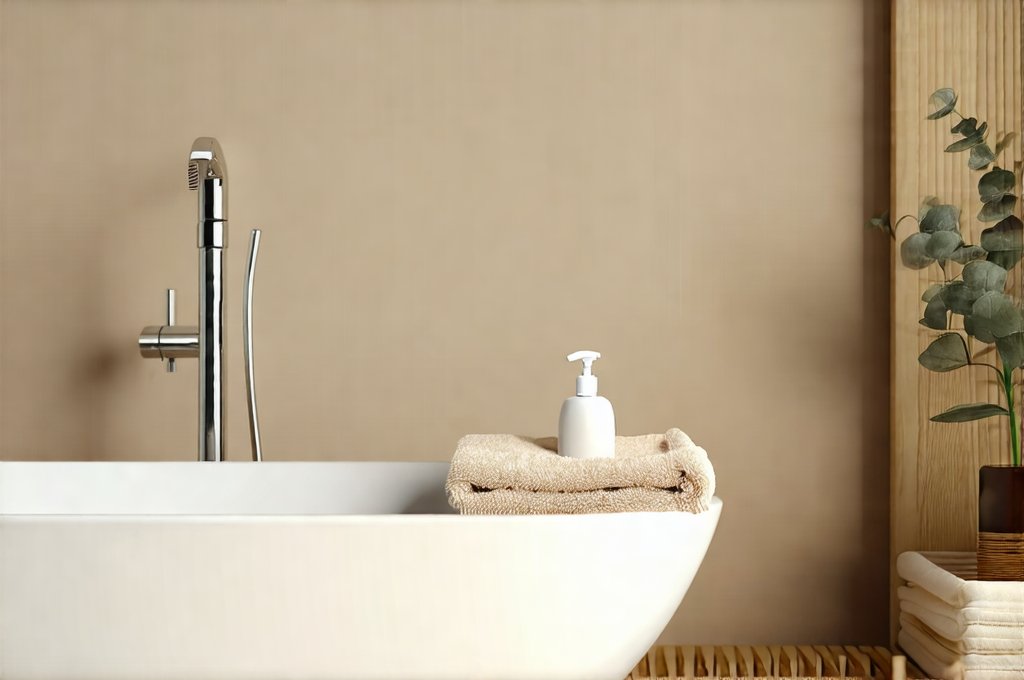The bathroom, often considered a functional space, is far more than just a room for hygiene. It’s frequently the first room we encounter in the morning, setting the tone for our entire day. A consistent, even seemingly simple, morning routine within this space provides structure, predictability, and a sense of control—elements profoundly impacting our psychological and physiological wellbeing. When these routines are disrupted – by travel, stress, altered schedules, or significant life changes – it can lead to a surprising fragility we might recognize as ‘bathroom instability,’ manifesting not necessarily as physical falls (though that can be part of it), but as increased anxiety, difficulty focusing, and a general feeling of being off-kilter. This isn’t about the bathroom itself being unstable; it’s about our internal equilibrium being thrown off by changes to this foundational daily ritual.
This disruption often goes unnoticed because we underestimate the power of routine, especially those seemingly minor ones performed in private. The familiar steps – brushing teeth, washing face, showering, getting dressed – aren’t just tasks; they are anchors grounding us as we transition from sleep to wakefulness. These actions provide a sense of agency and accomplishment, even before “real” work begins. They offer a quiet space for mental preparation, allowing us to mentally rehearse the day ahead or simply collect our thoughts. When this consistent start is removed or altered significantly, it can create a ripple effect, impacting mood, productivity, and overall emotional regulation throughout the day. The lack of that predictable beginning leaves many feeling adrift, struggling to gain traction even with simple tasks. Understanding key takeaways from tracking digestive data over time can also help you understand how routines impact overall wellbeing.
The Psychology of Bathroom Rituals
The bathroom ritual isn’t just about cleanliness; it’s deeply entwined with self-care and establishing a sense of self. Think about how many routines are centered around presenting ourselves – styling hair, applying makeup, shaving. These aren’t merely cosmetic acts; they’re expressions of identity and preparation for social interaction or simply feeling good in our own skin. The consistent performance reinforces self-worth and contributes to a positive self-image. Disrupting this creates an unsettling disconnect between how we feel internally and how we want to present externally, leading to increased self-consciousness and anxiety.
Furthermore, the bathroom often represents a space of privacy and control – a sanctuary where we can be alone with our thoughts without interruption. This solitude is valuable for mental processing and stress reduction. When this space is compromised or the routine within it altered, the feeling of safety and control diminishes. This is especially true during times of high stress; the bathroom ritual becomes a vital coping mechanism that’s suddenly unavailable. The absence can exacerbate feelings of overwhelm and helplessness. It’s not uncommon for people experiencing significant life changes – job loss, relationship difficulties, bereavement – to report a heightened sense of vulnerability when their morning routines are disrupted. Recognizing signs from test results that call for diet overhaul during times of change can also be beneficial.
Consider the role of habit formation. Our brains thrive on predictability; habits reduce cognitive load and free up mental resources for more demanding tasks. The bathroom routine, over time, becomes deeply ingrained in our neural pathways. When this habit is broken, it requires conscious effort to re-establish, draining energy and increasing stress levels. This explains why even minor disruptions – like a different brand of toothpaste or a change in shower temperature – can feel disproportionately unsettling. It’s the brain struggling to adapt to the unexpected variation within a familiar pattern. Morning gut priming rituals for all-day comfort are an example of how routine can impact daily function.
The Impact on Cognitive Function
A disrupted morning bathroom routine directly impacts cognitive function, particularly attention and focus. The consistent sequence of actions prepares the brain for the demands of the day ahead. It’s like a mental warm-up, priming neural pathways for optimal performance. When this preparation is missing, it takes longer to achieve a state of focused attention, making tasks more challenging and frustrating. This can lead to procrastination, reduced productivity, and increased errors in judgment.
The act of completing each step in the routine – from brushing teeth to choosing an outfit – provides small “wins” that release dopamine, a neurotransmitter associated with reward and motivation. These micro-rewards reinforce positive behavior and create a sense of accomplishment, setting a positive tone for the day. Without these subtle reinforcements, it’s harder to maintain motivation and stay on track. Essentially, we lose a crucial source of intrinsic reward that fuels our ability to cope with challenges. What you can learn from testing after switching diets can provide insight into how routines affect your body.
It is also important to acknowledge how sensory input plays a role. The specific textures, smells, sounds (even the quiet hum of a bathroom fan) become associated with wakefulness and preparation. A sudden change in these sensory cues – different soap scent, colder water temperature – can be disorienting and require extra cognitive effort to process. This seemingly minor disruption adds to the overall feeling of instability and contributes to difficulty concentrating.
Sleep & Wake Cycle Disruption
The bathroom routine is intricately linked to our circadian rhythm – the internal biological clock that regulates sleep-wake cycles. Consistent routines help synchronize this rhythm, promoting restful sleep and alert wakefulness. The act of getting ready in the morning signals to the body that it’s time to be awake and active. Disrupting this signal can throw off the circadian rhythm, leading to difficulties falling asleep or staying asleep, as well as daytime fatigue and grogginess.
This is particularly pronounced when travel is involved. Different time zones necessitate adjustments to sleep schedules, but even a minor shift can disrupt the delicate balance of the circadian rhythm. The absence of a familiar bathroom routine – due to unfamiliar surroundings or limited resources – exacerbates this disruption. It’s not just about the change in time zone; it’s about the loss of that consistent anchoring ritual that helps regulate the body’s internal clock. Signs from testing that show gut lining damage can also be exacerbated by disruption to your circadian rhythm.
Moreover, the use of technology in the bathroom (listening to music, checking emails) can further interfere with sleep patterns. Blue light emitted from screens suppresses melatonin production, making it harder to fall asleep. While not directly part of a traditional routine, these modern additions are often incorporated into our morning rituals and contribute to circadian rhythm disruption when altered or removed.
Re-Establishing Stability: Practical Strategies
The good news is that bathroom instability – while unsettling – is usually temporary and can be addressed with conscious effort. Rebuilding the disrupted routine is key. This doesn’t necessarily mean replicating the exact original routine; it means creating a new consistent sequence of actions that provides the same psychological benefits. Here are some steps:
- Identify the missing elements: What aspects of your old routine provided the most comfort and structure? Was it the quiet time for reflection, the sense of accomplishment from completing tasks, or simply the predictability of the sequence?
- Create a new, manageable routine: Start small. Focus on incorporating just one or two core elements into your morning. This could be as simple as brushing teeth, washing your face with lukewarm water and applying moisturizer. Avoid overwhelming yourself with too many changes at once.
- Prioritize consistency over perfection: It’s okay if the new routine isn’t exactly what you envisioned. The most important thing is to perform it consistently, even on weekends. This reinforces habit formation and helps regulate your circadian rhythm.
- Incorporate mindfulness: Use this time for a moment of calm – deep breathing, meditation or simply focusing on the sensations of washing and grooming can ground you in the present moment, reducing anxiety.
- Be patient: It takes time to rebuild habits. Don’t get discouraged if you slip up occasionally. Just acknowledge it and recommit to your routine the next day.
Finally, remember that bathroom instability is a signal – an indication that something needs to shift or change in your life. It’s not necessarily a sign of weakness; it’s a reminder to prioritize self-care and establish routines that support your wellbeing. By recognizing the power of these seemingly small rituals, we can proactively manage stress, improve cognitive function, and create a more stable and fulfilling daily experience. gi diagnostics used in recovery from eating disorders often emphasize the importance of routine as well. Also consider top early signs from stool tests that need follow-up.


















